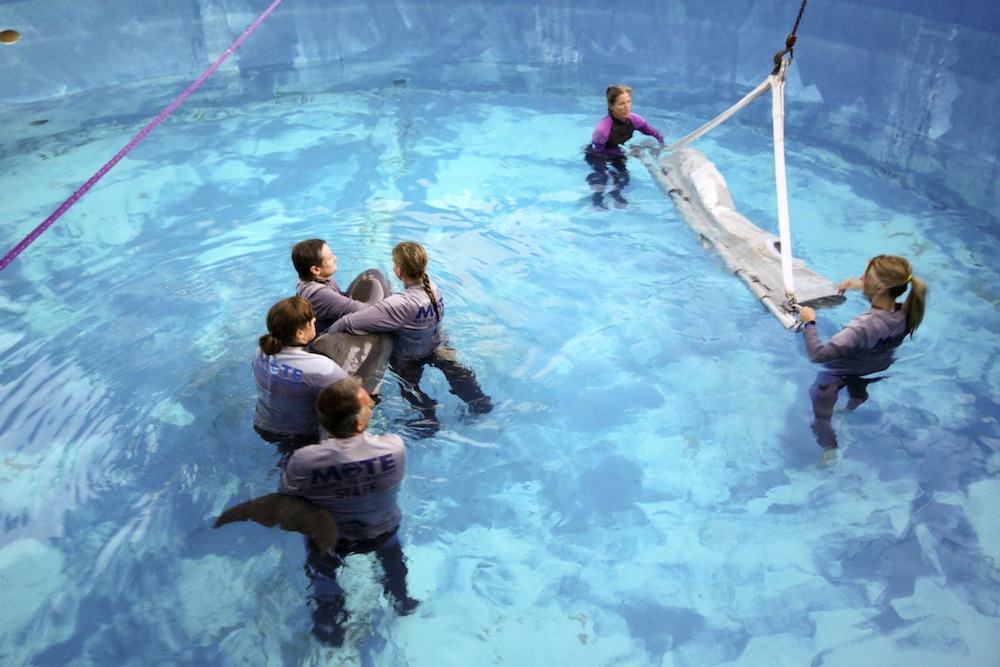Rescued Dolphin 'Edna' Released into Wild

A once-stranded dolphin has been successfully rehabilitated and released into the wild after two months of care.
Edna, a bottlenose dolphin, became stranded on Longboat Key in Sarasota, Fla., on June 6. Volunteers from the Mote Marine Laboratory Sea Turtle Patrol found the distressed dolphin and called in the Sarasota Dolphin Research Program to save her.
Edna is likely between 2 and 6 years old and weighed only 165 pounds (75 kilograms) when she arrived at Mote's Dolphin and Whale hospital for rehab — severely underweight for a bottlenose. She was suffering from pneumonia, gastritis and other health problems.
Wildlife rehabbers cared for Edna around the clock, treating her ailments and bringing her weight up to a healthy 240 pounds (109 kg). By early August, the dolphin was swimming and feeding on her own.
On Tuesday (Aug. 14) morning, Mote staff returned Edna to the sea about 2 miles (3.2 kilometers) offshore, where the dolphin spent a few moments readjusting. [Gallery: Releasing Edna the Dolphin]
"It was excellent to see her return home," Lynne Byrd, a medical care and rehabilitation coordinator at Mote, said in a statement. "We watched her get her bearings and then she seemed to be showing some fishing behaviors — that's a good sign."
The scientists fitted Edna with a satellite tag on her fin that will record her dives and other movements, adding to their knowledge of wild dolphin behavior.
Get the world’s most fascinating discoveries delivered straight to your inbox.
"This satellite tagging technology really enables us to determine the success of our rehabilitation and release," said Dr. Randy Wells, director of the Sarasota Dolphin Research Program. "And it will also allow us the opportunity to learn more about the behavior of a dolphin that spends most of its time further offshore than our Sarasota Bay dolphins."
Follow LiveScience on Twitter @livescience. We're also on Facebook & Google+.

Stephanie Pappas is a contributing writer for Live Science, covering topics ranging from geoscience to archaeology to the human brain and behavior. She was previously a senior writer for Live Science but is now a freelancer based in Denver, Colorado, and regularly contributes to Scientific American and The Monitor, the monthly magazine of the American Psychological Association. Stephanie received a bachelor's degree in psychology from the University of South Carolina and a graduate certificate in science communication from the University of California, Santa Cruz.


